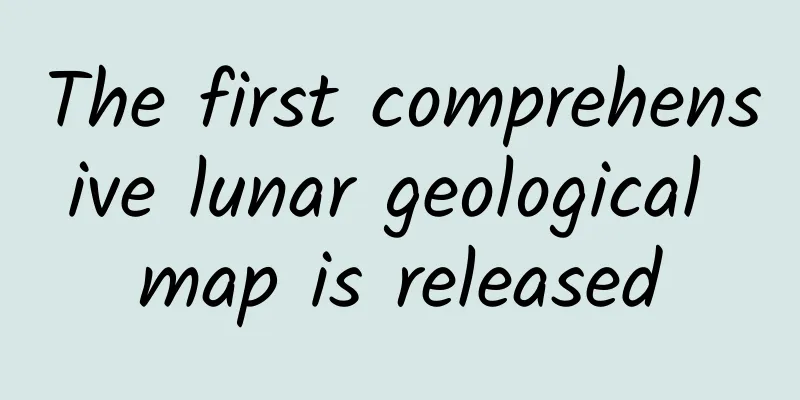The first comprehensive lunar geological map is released

|
According to the Physicists' Organization website on the 22nd, American scientists today released the first comprehensive lunar geological map to date. They said that this comprehensive map is expected to help us further understand the 4.5 billion-year history of our closest space neighbor and provide reference for future human lunar exploration and lunar landing missions. Scientists from the U.S. Geological Survey (USGS), the National Aeronautics and Space Administration (NASA) and the Lunar and Planetary Institute worked together to draw the first complete geological map of the entire lunar surface and classify it uniformly. The new lunar map, called the "Unified Geological Map of the Moon", shows the geology of the moon at a scale of 1:5000000 and is the final blueprint of the geology of the lunar surface to date. To create the new digital map, scientists used information from six Apollo-era regional maps, as well as updated information from recent satellite missions to the moon. In addition, they redrawn existing historical maps of the moon to make them consistent with modern data sets. In addition to merging old and new data, USGS researchers also unified the description of lunar stratigraphy (layers of rock), resolving issues with rock names, descriptions and ages that were sometimes inconsistent in previous maps. In addition, the elevation data of the lunar equatorial region comes from the stereoscopic observation data collected by the "Terrain Camera" on the "Earth Science and Engineering Explorer" (SELENE) satellite led by the Japan Aerospace Exploration Agency; the terrain data of the lunar North and South Poles are supplemented by data provided by NASA's "Lunar Orbiter Laser Altimeter". "This map is the culmination of a decade-long project," said Corey Fortz, a USGS geologist and lead author of the new map. "It will connect exploration data from specific locations on the Moon with data from other places on the lunar surface, and will help humans with future lunar exploration and landing missions. It will also be important to the international scientific community, educators and the general public." "People have always been fascinated by the moon and are curious about when we might go back there, and this map can provide an informative resource for future NASA missions," said Jim Reilly, current USGS director and former NASA astronaut. The public can now view and download the map at the Unified Geological Map of the Moon website. |
>>: "The ugliest animal in the world"? No, it's a great miracle of evolution
Recommend
Is drinking yogurt every day good for your health? You will never guess the answer
"Yogurt is a healthy drink. Drinking more of...
Loving beauty has risks. Can manicures cause cancer?
"Golden phoenix flowers bloom more brightly,...
In the story of the carp leaping over the dragon gate, which one of them is it?
We often hear various legends about carp leaping ...
The efficacy and function of tamarind
Many people choose tamarind because of its high-v...
World Tourism Organization: First World Tourism Barometer in 2024
The World Tourism Organization recently released ...
To deal with "double positive", how to choose among the 6 domestically marketed new coronavirus oral drugs?
Recently, topics related to the novel coronavirus...
The efficacy and function of cloth dog tail
The efficacy and function of the Chinese medicine...
What are the medicinal values of the herb?
Various Chinese herbal medicines have a very impo...
A 6.1-magnitude earthquake struck Lushan, Ya'an, Sichuan! Save! An effective guide to escaping and self-rescue in the event of an earthquake
The China Earthquake Networks Center officially d...
Have you discovered the secret to immortality? Longer telomeres = longer lifespan?
Reviewer: Zhang Jianwei Deputy Chief Physician, D...
The efficacy and function of fruit leaves
The leaves on the fruit can mainly achieve the ef...
Many people don't realize the relationship between aging and eyebrows! Let's take a look at your eyebrows. Are they like this?
Describe a handsome guy: thick eyebrows and big e...
Red umbrellas and white stems, how did the ancients eat mushrooms?
If you are a web surfing enthusiast, you must hav...
The efficacy and function of rice and wheat noodles
Traditional Chinese medicine is a Chinese traditi...









